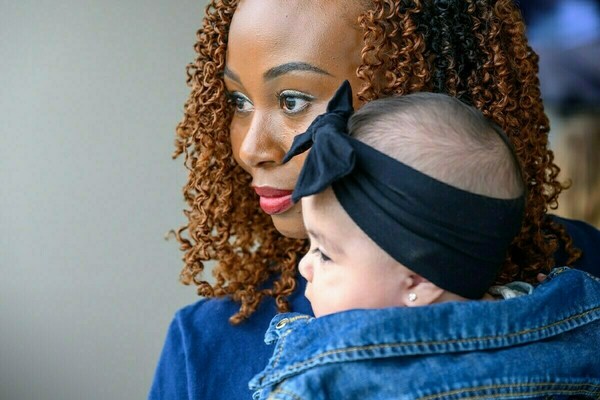ISLA Funds Twelve Projects Examining “Technology and the Common Good” through 2023-24 Annual Research Theme Grant Program
Last spring, the Institute for Scholarship in the Liberal Arts announced “Technology and the Common Good” as its annual research theme for AY 2023-2024. Taking to heart the notion that technology is a subject of inquiry not only for science and engineering but also the liberal arts, ISLA invited proposals for research projects that evaluated the impact and ethics of technology in the past, present and future.
Scholars in the College of Arts and Letters responded by proposing a wide range of projects that examined the social, cultural, and political dimensions of technological innovation, as well as methods for harnessing technology to advance the common good. In total, ISLA awarded twelve grants to faculty and graduate students in ten different departments and programs across the arts, humanities, and social sciences.
With ISLA support, some scholars will look to the past to examine the societal impact of technology. History graduate student Joshua Tonkel’s project will study Tuskegee University’s efforts to make agricultural knowledge and technology useful for southern Black farmers in the twentieth century. Focused on the relationship between technology and society, Ranjodh Singh Dhaliwal, a faculty member in English, will use an Annual Research Theme grant to complete a project that studies pre-Capitalist Eurasian technologies to better understand “what kind of worlds can create, sustain, and maintain what kind of technologies.”
Other theme grant recipients will undertake projects about the politics of technology in the present-day. Comparing contemporary India and China, political science graduate student Peitong Jing will examine the role of digital media in building official nationalism. Ali Altiok, a graduate student in political science and peace studies, will analyze the effects of digital technologies on youth political participation and trust in Kenya. Julie Hawke, graduate student in sociology and peace studies, will use social media data to map online networks of exiled Afghan politicians and activists, while Matthew Coetzee, a sociology graduate student, will study the role of technology in mitigating political violence amid state failure in South Africa. From the perspective of the history and philosophy of science, graduate student Lizao Wang will conduct an ethnographic study of Chinese hackers to shed light on contemporary issues of cybersecurity and national identity.
Some grant recipients will test the potential of technologies to promote health, sustainability, and human connection. For example, anthropology faculty member Luis Felipe Rosado Murillo will use ISLA support to organize a community workshop “for skill-sharing around digital technologies for community-driven environmental monitoring” in Campinas, Brazil. Design faculty member Jason Carley will design and assemble prototype machines to make sustainable building materials that can “displace the plastics and monoculture lumber in engineered timber.” Using emotion recognition software, psychology graduate student Austin Wyman will develop a new approach to measuring emotion regulation, a key facet of mental health. Kimberly Belcher, a faculty member in the department of theology, will make St. John’s Abbey and the George Floyd Global Memorial accessible to a wider audience using virtual reality with spatial audio to “stimulate a new emotional and praxical foundation for racial political activism and new meaning and purpose for Christian prayer.” Art graduate student Nicholas Swift will use biometric sensing and generative visualization technology to visualize heartbeat and brainwave information in real-time as consenting participants view a musical performance. The goal of these visualizations is to demonstrate the presence of mindfulness and synchrony, or “feelings of kinship that lead to empathy and other prosocial behavior among various scales of human communities.”
Taken together, these twelve projects offer a rich picture of the various ways that technologies shape humanity. They also demonstrate the innovative work undertaken by Arts and Letters faculty and ISLA’s continued role as a catalyst for impactful research.
Originally published by at isla.nd.edu on May 01, 2024.
Latest Research
- Fighting for maternal healthThe United States has the highest maternal mortality rate of developed nations. An innovative postpartum care model from Notre Dame can save mothers around the globe. Read the story Originally…
- NSF Cyber SMART’s fall meeting shapes fifth year of project, legacy and future plans, and adds new memberThe U.S. National Science Foundation (NSF) Cyber SMART center gathered for its fall meeting on the University of Notre Dame campus this September. The meeting served as a checkpoint with progress reports and new projects from research leads and students…
- Slavic and Eurasian studies professor wins Humboldt fellowship to research how Russia’s religious past shapes its presentWhen Russia invaded Ukraine on Feb. 24, 2022, Sean Griffin realized his second book needed a new title. Griffin, an associate professor in the University of Notre Dame’s Department of…
- Notre Dame’s R.I.S.E. AI Conference builds interdisciplinary collaboration to inform human-centered artificial intelligenceAs artificial intelligence (AI) transforms nearly every sector of society — from healthcare and education to governance and global development — a critical question emerges: How can we conscientiously design and deploy these powerful technologies to positively impact society? This…
- University of Notre Dame joins the Global Coalition of Ukrainian StudiesThe University of Notre Dame has joined the Global Coalition of Ukrainian Studies after signing a Memorandum of Cooperation (MOC), formalized on September 24, 2025, at the Ukrainian Institute of America in New York City. Notre Dame joined four other American…
- The University of Notre Dame’s Mendoza College of Business and Industry Labs team up to inspire national security manufacturing competitiveness in the regionThe South Bend - Elkhart Region is full of manufacturing companies that are poised to grow, and Executive Master of Business Administration (EMBA) and Master of Business Administration (MBA) students at the University of Notre Dame are finding innovative ways to contribute to that growth. Earlier…













